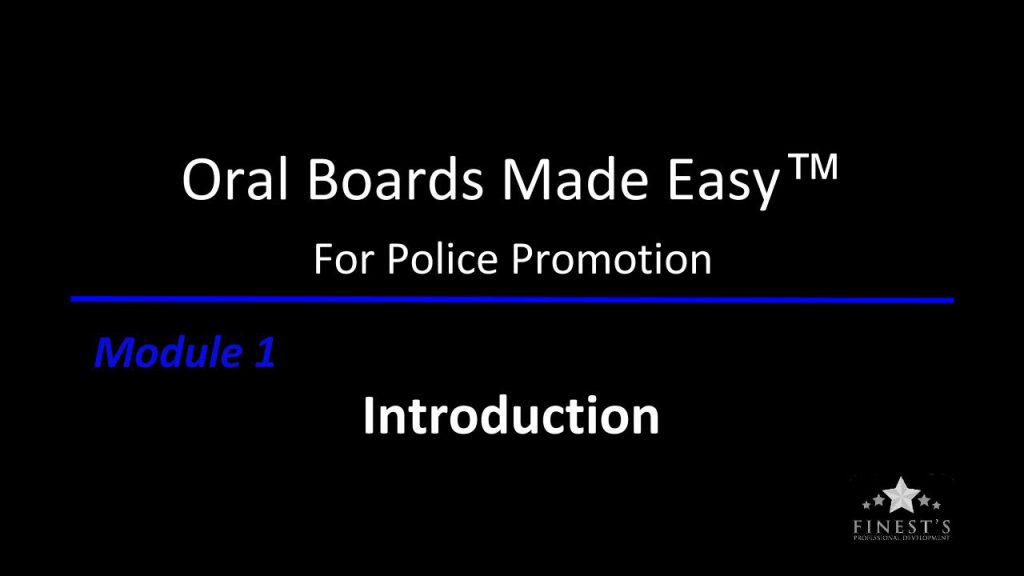Answer as a manager at your lieutenant oral board
There is a natural order to the world and there is a natural order to oral board preparation. With rare exceptions, we advance in police positions one step at a time. This series of articles represent the progression of responsibilities that each law enforcement position holds. (The first article was “The Sergeant’s Oral Board: Preparing to be #1”.) They also cover the corresponding complexities of preparing for an oral board for the next rank. So, if you are now preparing for an upcoming lieutenant’s oral board, please take note. If it has been a while since you were successful at your sergeant’s oral board, you may wish to review the Sergeant’s Oral Board article as a foundational reference.
The lieutenant’s rank is the first step where manager responsibilities are added to the job description. As an officer, deputy or trooper you conquered the challenges of getting the job done. As a sergeant you are responsible for assuring the quality of the work performed by the frontline officers. Now, as a lieutenant you will be facing the business challenges of law enforcement. The term middle-manager is often assigned to lieutenants. It reflects that some management responsibilities are expected. Increased delegating, planning, and organizing to name a few. Still, higher level management duties are retained at the command staff/manager level. Yet, the logic is simple. Develop and demonstrate your competencies at a gradual rate. If you are successful, you should be well-positioned to move even further up the ladder.
First of all, it is important to recognize that agencies may differ in how they define ranks. Some agencies skip the sergeant rank and have lieutenants serve as the first-line supervisor. While other agencies skip the lieutenant rank and have sergeants reporting to captains. And quite likely many other variations exist. For our purposes, the officers represent the frontline. Sergeants are first line supervisors and lieutenants are middle-managers who report to captains (managers). So while the rank label may differ for your agency, this strategy is aimed at the sworn middle manager.
What are Middle Manager issues?
The lieutenant oral board determines if the candidate can accomplish organizational objectives through an additional level of personnel. Because a sergeant has direct contact with his or her officers, there are fewer communication obstacles. Sergeants give direction and are able to evaluate if the work was performed as intended. For lieutenants, the extra layer of personnel changes the game. Therefore, you need to convey to the board that you understand this new dynamic. Focus on how you delegate effectively with multiple sergeants who then assign and assure the completion of tasks.
“If you are looking for a well designed assessment / oral interview study program this is the one. The program is very reasonably priced, so don’t risk your career watching free videos or just reading articles on line. If you’re serious about getting promoted, invest in your career and use The Oral Boards Made Easy program. It will help you get promoted.”
-Promoted to Lieutenant in Massachusetts
What is an effective Delegation Strategy for an Oral Board:
- Reinforce the reason you delegate is to increase your efficiency as a manager. You are also instilling responsibility in your sergeants. Delegating gives those sergeants an opportunity to grow through mastering new experiences. You would not delegate a task merely because it is unpleasant to you.
- Delegate tasks to those you believe are capable of being successful at the task. Delegating a task to a sergeant you know cannot succeed is counterproductive to the sergeant and the organization. A sergeant’s professional development is important but not to the detriment of the task.
- Communicate clearly to the sergeant what success looks like. During an oral board you should not say “I would tell the sergeant to take care of this”. Rather, you should say, “I would instruct the sergeant to investigate this particular complaint fully. To include officer and witness statements and then prepare a complete report for my review, including recommendations. The report should be delivered to me personally by 1600 hours on Friday”. In oral boards, as in real life, clearly communicating the desired outcome increases the likelihood of receiving the desired outcome.
- Indicate that you would make yourself available to the sergeant throughout the delegated task. You are there in the event the sergeant requires guidance or if unexpected issues are encountered.
- Indicate that a clear and firm deadline is established in any task that you delegate. When appropriate, you will confer with the sergeant on the deadline to get feedback on the deadline’s reasonableness. More importantly, this cements their buy-in assuring that the deadline is met.
- Evaluate the completed work product against the specific success you defined for the sergeant. This provides the sergeant with feedback (positive and/or corrective) regarding his or her work product. When appropriate, you will direct the sergeant to provide your feedback to the frontline officers involved.
Communicating through layers is challenging. You should demonstrate to the board that you understand this challenge. Show them that you have a strategy to address this challenge. Prove that you can apply that strategy in real life.
Watch FREE:
On-Demand Seminar Module 1: Introduction
How to use a Planning and Organizing Strategy for an Oral Board
A second major competency measured at a lieutenant oral board is the ability to plan and organize effectively. Be well-practiced in the approach that you will apply to answer a question that involves planning for an event and coordinating resources. A relatively simple planning and organizing strategy would include these elements:
- Work backward from a successful outcome. If the question is: “What steps would you take to assure that a last-minute demonstration in front of city hall is problem-free?” A desirable end result would be, “A legal and peaceful public event with no arrests. No physical harm to persons or property. And minimal disruption to the people and good order of the city.”
- Recognize that such an outcome will not likely occur on its own. You would then tell the panel what potential conditions may cause that desired outcome to not occur (e.g.: lack of pedestrian control, lack of bystander diversion, etc.)
- Articulate at least one corresponding action that you would execute to minimize or eliminate each condition that you identified as a potential obstacle to success. (e.g.: assign a sergeant to oversee traffic control)
- Seek to indicate a non-police-personnel resource that may be of assistance for each obstacle-related action that you are recommending, (e.g.: barricades from public works, traffic cameras from the department of transportation, etc.) By using non-police-personnel resources you are conveying your creativity in problem solving.
- Indicate the timing of your actions and resources, when relevant. State that you would bring in officers shortly before the event minimizing staffing and overtime. Explain that you would release them as soon as the situation permitted. Also, the same for barricades or other resources being applied. These time references tell the panel you are sensitive to management and budget issues and monitor them carefully.
- Finally, address the method that you would use to evaluate your management of this event. Bring key people involved in the incident together to debrief and create an after action report. This allows for each event to serve as both a learning opportunity and a template for future success.
Conclusion
Lieutenant’s oral board panelists are seeking to determine if you have mastered your sergeant’s responsibilities. Are you prepared to start managing people and resources at a more complicated level? Prepare to speak confidently on how you will get frontline objectives met through your sergeants. Show how you will utilize resources effectively and efficiently. This conveys that you know what you need to do as a highly effective lieutenant. Furthermore, it provides evidence to the panel as to why you should be the top scoring candidate.









